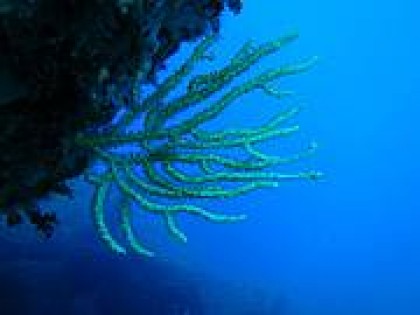
December 2014
 | December 2014 |
More research needed on the conservation status of Mediterranean corals | |
|---|---|
 Over the last two years, the IUCN Centre for Mediterranean Cooperation has been coordinating the expert group assessing the status of Mediterranean anthozoans. After intensive data gathering, monitoring and analysis, the experts have concluded that around 45 per cent of species are Data Deficient, that is, there is insufficient information to assess their risk of extinction. The preliminary results of the evaluation also indicate that approximately 11 per cent of the species assessed are threatened with extinction according to The IUCN Red List of Threatened SpeciesTM. The experts assessed the extinction risk facing 145 species of anthozoans, including deep- and shallow-sea corals, gorgonians, zoanthids, sea anemones and sea pens. Besides the lack of information about species, the experts also discussed the next steps for promoting conservation actions in the region through a variety of activities and policy programmes such as the governance tools of the Barcelona Convention. Many anthozoans play an important role in the Mediterranean as bioconstructors, creating microhabitats that provide shelter for many other organisms, including commercial species. The rich ecosystems they support can host a high level of benthic species diversity, and several Mediterranean creatures are adapted to living exclusively in these habitats. Some species such as black corals are slow-growing organisms that can live for decades or even millennia. As colonies are so fragile, they are highly vulnerable to environmental or human-induced impacts and can often take years or even centuries to recover from disturbance. These results arose from a workshop kindly hosted by the University of Genoa at Santa Margherita Ligure (Italy) from 29 September to 2 October 2014, with the support of the IUCN Red List Unit and the IUCN Global Marine Assessment Programme. It was attended by 25 experts from several different Mediterranean countries. The final assessment report will be available by mid-2015. This Regional Red List workshop is part of an important regional initiative funded by the MAVA Foundation to conduct comprehensive extinction risk assessments for more than 2,500 species of invertebrates and plants that occur in the Mediterranean region.
For further information please contact Mar Otero
Photo: Red Coral in Portofino Marine Protected Area (Italy). © Mar Otero | |